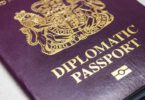If you have ever dreamt of working in Canada, securing a Canadian work Visa is key to living and working as an immigrant. Certain requirements are necessary to qualify you for a Canada work visa. Considering Cost, eligibility and application process is the line of this article. Read to the end to learn more about securing a work visa to Canada.
Types of Canadian Work Visas
Canada offers several work visa options tailored to different needs and circumstances:
- Temporary Work Permits: These permits are for individuals who wish to work in Canada for a limited period. They often require a job offer from a Canadian employer.
- Open Work Permits: Unlike employer-specific permits, open work permits allow you to work for any Canadian employer, except for those on the ineligible list or involved in prohibited activities.
- Post-Graduation Work Permit (PGWP): International students who graduate from a designated learning institution (DLI) in Canada may be eligible for a PGWP, enabling them to gain Canadian work experience.
- Global Talent Stream (GTS): Designed to help Canadian employers attract highly skilled workers, this program expedites the visa process for in-demand occupations.
Eligibility Requirements
The specific requirements depend on the type of work visa, but general criteria include:
- Job Offer: For most work permits, you need a valid job offer from a Canadian employer.
- Labour Market Impact Assessment (LMIA): Your employer may need to obtain an LMIA, proving that hiring a foreign worker won’t negatively impact the Canadian labour market.
- Proof of Funds: Evidence that you can support yourself and any accompanying family members during your stay.
- Health Requirements: A medical examination may be required to ensure you’re in good health.
- Security Clearance: A background check to confirm you have no criminal record.
General Eligibility Criteria
- Valid Passport
Applicants must possess a valid passport with sufficient validity beyond the intended stay in Canada. - Purpose of Visit
Provide a clear and legitimate reason for entering Canada, such as tourism, work, study, or family reunification. - Proof of Financial Support
Applicants must demonstrate they have sufficient funds to cover their stay in Canada, including accommodation, travel, and living expenses. - No Criminal Record
A police clearance certificate is often required to prove the applicant does not have a criminal history. - Medical Examination
In some cases, especially for long-term stays or if the applicant is from a country with high health risks, a medical examination is required. - Intent to Leave Canada
For temporary visas (visitor, work, or study permits), applicants must prove their intent to leave Canada after their visa expires. - Biometrics
Applicants from many countries are required to provide biometrics (fingerprints and photographs) during the visa application process.
Specific Regulations by Visa Type
Visitor Visa (Temporary Resident Visa – TRV)
- Intended for tourism, business visits, or family visits.
- Applicants must show they will leave Canada before the visa expires.
- Some travellers may qualify for an Electronic Travel Authorization (eTA) instead of a visa.
Work Permit
- Requires a valid job offer from a Canadian employer in most cases.
- Employers may need to obtain a Labour Market Impact Assessment (LMIA) to prove no Canadians are available for the role.
- Certain applicants may qualify for LMIA-exempt permits (e.g., under international agreements like NAFTA or CUSMA).
- Work permits can be employer-specific or open (e.g., Post-Graduation Work Permits).
Study Permit
- Must have an acceptance letter from a Designated Learning Institution (DLI) in Canada.
- Applicants must demonstrate financial ability to pay tuition fees and living expenses.
- Applicants may work part-time while studying and full-time during scheduled breaks.
Permanent Residency (PR)
- Different pathways, such as Express Entry, Provincial Nominee Program (PNP), or family sponsorship.
- Points-based eligibility for Express Entry (factors include age, education, work experience, and language skills).
- Medical and criminal background checks are mandatory.
Additional Regulations
- Application Accuracy
All documents must be accurate, complete, and truthful. Providing false information may result in a refusal or a ban from entering Canada. - Processing Fees
Applicants must pay non-refundable processing fees for their visa applications. - Travel Insurance
For certain visas, especially Super Visa for parents and grandparents, applicants must provide proof of medical insurance coverage. - Country-Specific Requirements
Regulations may vary based on the applicant’s country of residence. For instance, additional documents or certifications may be required. - COVID-19 Regulations (if applicable)
Ensure compliance with current public health guidelines, such as vaccination requirements or quarantine protocols.
Cost of Work Visa to Canada Application
- Employer-Specific Work Permit: CAD $155
- Open Work Permit: CAD $255, which includes:
- Work permit processing fee: CAD $155
- Open work permit holder fee: CAD $100
- Restoration of Status as a Worker: CAD $394.75, which includes:
- Restoration of status fee: CAD $239.75
- New work permit fee: CAD $155
Additionally, if biometrics are required, the fees are:
- Individual Applicant: CAD $85
- Family (2 or more people applying at the same time and place): CAD $170
- Group of Performing Artists (3 or more): CAD $255
Application Process
- Determine Eligibility: Assess which type of work visa suits your qualifications and job offer.
- Gather Required Documents: Common documents include your passport, job offer letter, LMIA (if applicable), and proof of qualifications.
- Submit Application: Apply online through Immigration, Refugees and Citizenship Canada (IRCC) or via a visa application center.
- Biometrics and Interview: You may need to provide fingerprints, and photos, and attend an interview.
- Wait for Approval: Processing times vary depending on the type of visa and your country of residence.
- Travel to Canada: Once approved, present your visa and supporting documents to the immigration officer upon arrival.
Benefits of a Canadian Work Visa
- Pathway to Permanent Residency: Gaining Canadian work experience can improve your eligibility for permanent residency programs like Express Entry.
- Access to a Thriving Job Market: Canada has a demand for skilled workers in sectors like healthcare, technology, and trades.
- Family Accompaniment: Many work permits allow you to bring your spouse and children, who may also be eligible for work or study permits.
Common Grounds for Refusal
- Insufficient financial resources.
- Incomplete documentation.
- Failure to convince the officer of temporary intent for short-term visas.
- Past immigration violations or criminal records.
- Health issues that could endanger public health in Canada.
Tips for a Successful Application
- Research Job Opportunities: Secure a job offer before applying to streamline the process.
- Meet Deadlines: Submit your application and supporting documents promptly to avoid delays.
- Seek Professional Assistance: Immigration consultants or lawyers can provide guidance to ensure your application meets all requirements.
Conclusion
A work visa to Canada opens the door to a wealth of opportunities in one of the world’s most welcoming countries. Whether you’re seeking temporary employment or a stepping stone to permanent residency, understanding the process and meeting the requirements are essential for a successful application. Start your journey today and take the first step towards building your future in Canada.





